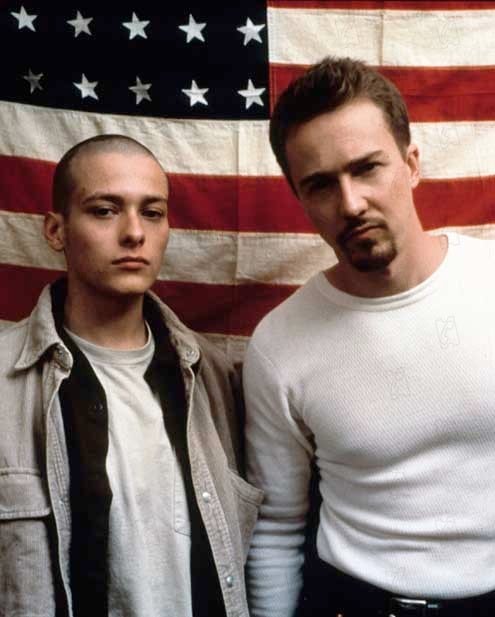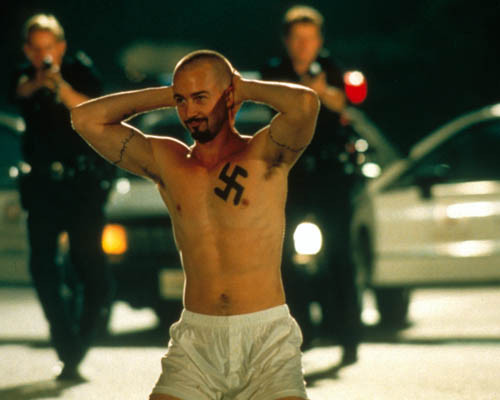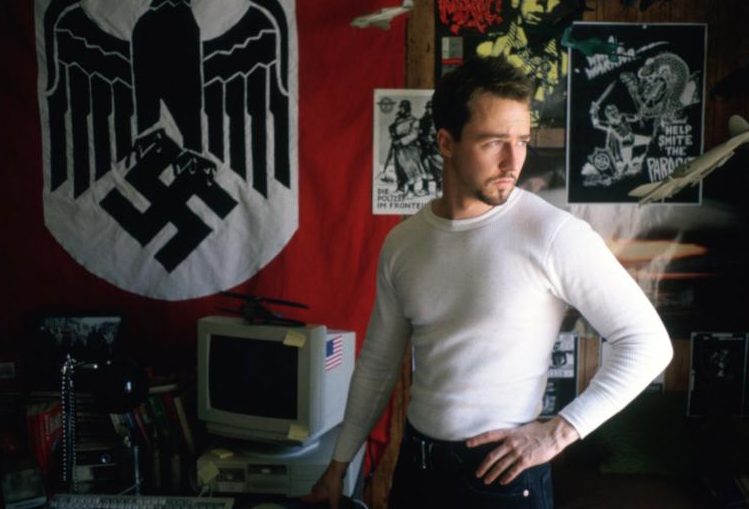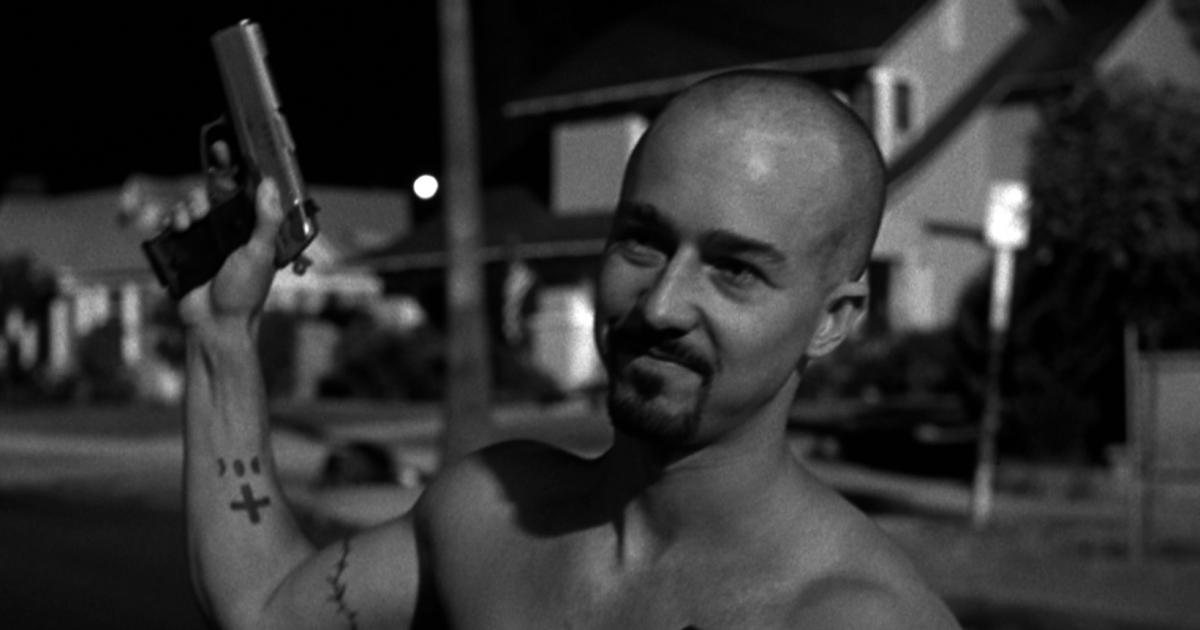🎬🎬 American History X (1998), directed by Tony Kaye and anchored by a powerhouse performance from Edward Norton, is a searing, emotionally charged examination of hate, redemption, and the cyclical nature of violence. It tells the story of Derek Vinyard, a former neo-Nazi leader who tries to prevent his younger brother Danny (Edward Furlong) from following the same path of white supremacy that once consumed him.
Told through a nonlinear narrative and stark black-and-white flashbacks, the film offers a brutally honest look at the roots of racial hatred—fueled by fear, ignorance, and broken systems—and the human cost it exacts. Norton’s portrayal of Derek is extraordinary: chilling and charismatic as a skinhead, yet quietly devastating as a man wracked with guilt and desperately trying to change. His physical transformation mirrors his emotional journey, making the character’s redemption feel earned and deeply affecting.


The prison sequences, where Derek begins to question everything he once believed, are among the film’s most powerful. It’s in these moments of vulnerability, humiliation, and unexpected kindness that the seeds of change are planted. Meanwhile, Danny’s perspective shows how impressionable youth can be shaped by trauma, anger, and ideology—until someone breaks the cycle.
Tony Kaye’s direction is raw and often confrontational, refusing to sanitize the ugliness of racism or violence. The cinematography contrasts past and present with poetic starkness, while Anne Dudley’s haunting score adds emotional depth.

The film’s ending is both tragic and sobering, underscoring the idea that hate begets hate—and redemption, while possible, is fragile and never guaranteed. American History X is not an easy watch, but it is a vital one: provocative, painful, and ultimately human. It challenges viewers to confront uncomfortable truths—and dares to offer hope through empathy and change.





